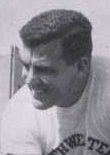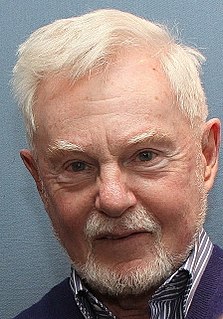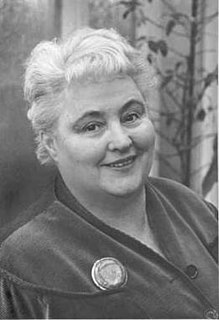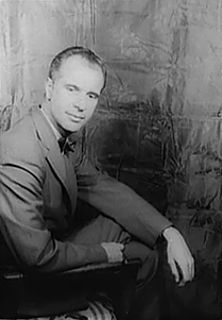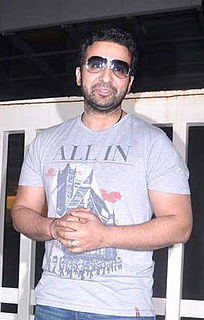A Quote by Sean Penn
'The Indian Runner' was easy. It had been incubating in me for eight years, and by the time I sat down to write the thing, I had all the pictures in my head.
Related Quotes
Today, I am wondering what would have happened to me by now, if, fifty years ago, some fluent talker had converted me to the theory of the eight-hour day and convinced me that it was not fair to my fellow-workers to put forth my best efforts in my work? I am glad that the eight-hour day had not been invented when I was a young man. If my life had been made up of eight-hour days, I don't believe I could have accomplished a great deal.
Cross out as many adjectives and adverbs as you can. ... It is comprehensible when I write: "The man sat on the grass," because it is clear and does not detain one's attention. On the other hand, it is difficult to figure out and hard on the brain if I write: "The tall, narrow-chested man of medium height and with a red beard sat down on the green grass that had already been trampled down by the pedestrians, sat down silently, looking around timidly and fearfully." The brain can't grasp all that at once, and art must be grasped at once, instantaneously.
When Mr. William Faraday sat down to write his memoirs after fifty-eight years of blameless inactivity he found the work of inscribing the history of his life almost as tedious as living it had been, and so, possessing a natural invention coupled with a gift for locating the easier path, he began to prevaricate a little upon the second page, working his way up to downright lying on the sixth and subsequent folios.
For weeks past he had been making ready for this moment, and it had never crossed his mind that anything would be needed except courage. The actual writing would be easy. All he had to do was to transfer to paper the interminable restless monologue that had been running inside his head, literally for years.
Indira Gandhi had been this very powerful, dominating, ambiguous mother figure. Ambiguous because she was tyrannical, she had imposed...she had suspended Indian democracy for a few years but she also was the woman who had defeated Pakistan in war at a time when most male politicians in India had secretly feared fighting that war, so that here in India even today Indira Gandhi is called by Indian nationalists the only man ever to have governed India.
At exactly fifteen minutes past eight in the morning, on August 6, 1945, Japanese time, at the moment when the atomic bomb flashed above Hiroshima, Miss Toshiko Sasaki, a clerk in the personnel department of the East Asia Tin Works, had just sat down at her place in the plant office and was turning her head to speak to the girl at the next desk.
I remember playing a Twenty20 game in Australia in 2007 and Matthew Hayden smacked one back at me. My head goes down as I follow through and as I looked up I just saw this white flash pass about an inch from the side of my head. If it had been a touch straighter I would not have had time to react and who knows what could have happened.

